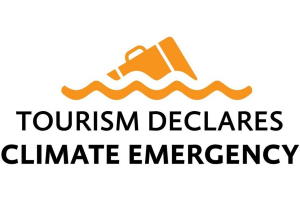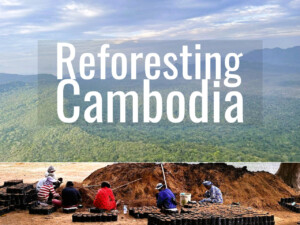Dare to share, not declare: Travel & tourism and the reality of climate change

Climate change is real. It comes with costs. Climate policy also comes with costs. The trick is to find a sensible balance.
So said compassionate rationalist Bjorn Lomborg in a conversation with former Deputy PM of Australia John Anderson, which was published Friday on YouTube.
Dr Lomborg, who is President of the Copenhagen Consensus Center, pointed to the sad fact that the global economy cannot afford to invest in all 169 sustainable development targets within the 17 United Nations sustainable development goals (SDGs).
Yet among the SDGs there are targets that offer significantly superior value for money in terms of social, economic, and environmental returns on investment.
Climate-related carbon targets are not among them, unfortunately. For example, Dr Lomborg says if Australia were to somehow be carbon-neutral from today until the end of this century it would, assuming all other conditions were equal, barely reduce bushfire risk on the continent.
But even if it were a pressing priority to be carbon-neutral, it is an extremely costly exercise given current technology. For example, New Zealand’s goal of becoming carbon-neutral by 2050 will cost that country 16% of national GDP while delivering a global average temperature reduction of only four one-thousandths of a degree (0.004℃) by 2100, according to Lomborg.
If Lomborg and his Nobel laureate collaborators are right, there are much more socially and environmentally beneficial things Aussies and Kiwis could be doing with their resources both at home and abroad than pursue carbon-neutrality.
Given that globally we are all at different stages of economic development and standards of living, with varying levels of unfulfilled needs and wants, our finite resources would be better spent alleviating human suffering through investments in family planning, healthcare, and education while freeing up global trade and development.
Our travel & tourism industry is a very good contributor to many of the most beneficial sustainable development targets. Therefore, if Lomborg & co is correct, our industry would be much better off and more greatly appreciated if it continued chipping away at mitigation and adaptation, evolving its own best practices, and cheerleading for technological progress, than by advocating for “system change”.

Speaking of “system change”, if the 68 (at writing) travel & tourism people and organisations that have signed up to Tourism Declares Climate Emergency sincerely believe that there is a climate emergency — and that the industry in which they participate is a disproportionately large contributor to it — then they should immediately stop facilitating all unnecessary travel.
Such an action would be commensurate with their declaration of “emergency” under their symbol of a sinking suitcase!
But, no. Brandishing their badges of buffeted baggage, our bold band of declarers are cleverer than that. They have, Lomborg-like, prioritised the survival of their own businesses over the health of our shared planet. And their prognosis for the planet is that it will survive their customers’ continued travels whose plans will proceed despite the risk of luggage lost to surging sea!
All harmless fun aside, Tourism Declares’ stated intent to chip away at their greenhouse gas emissions and other externalities — and be transparent about it — is admired and supported by your correspondent, who offers “GT” as a sharing platform for everyone involved.
The much more serious point that needs to be made is in relation to the fifth item in Tourism Declares’ declaration, which your correspondent feels is an unconscionable abdication of responsibility and a lack of consideration for fellow tourism stakeholders. That item calls not only for “system change”, whatever that means, but for “urgent regulatory action to accelerate the transition towards zero carbon air travel”.
Regulations imposed from on high are often blunt instruments at the best of times. Thus, calling for “urgent regulatory action” without being specific has the very real potential to deal nasty trauma to not only airlines, but also their suppliers, as well as the visitor economies of aviation-dependent destinations, such as Australia, New Zealand, Iceland, the Philippines, much of the Pacific …
Having been thrown under the blame bus like this, it is no wonder airlines have yet to sign up to the Tourism Declares initiative.
The declaration’s meek submission to “system change” — what does that mean!? — and unspecified regulatory authority is the fourth reason why “GT” will not sign up to Tourism Declares.
Your correspondent’s preferred strategy for dealing with climate change would be for the travel & tourism industry to remain calm and collaborative, positive and practical, community-led and yield-driven, and to only seek government intervention with specific policy proposals in mind.
And rather than dare you to declare, I dare you to share: How are you becoming more climate-friendly? And how are you working in partnership with all your stakeholders, including airlines, to do better each day?
“Good Tourism” Insights are freely offered, gratefully received, and generously shared. They are not a creed to submit to nor to be bound by.
And that’s good news.
[Updated July 9, 2022 to split long paragraphs into shorter paragraphs.]





